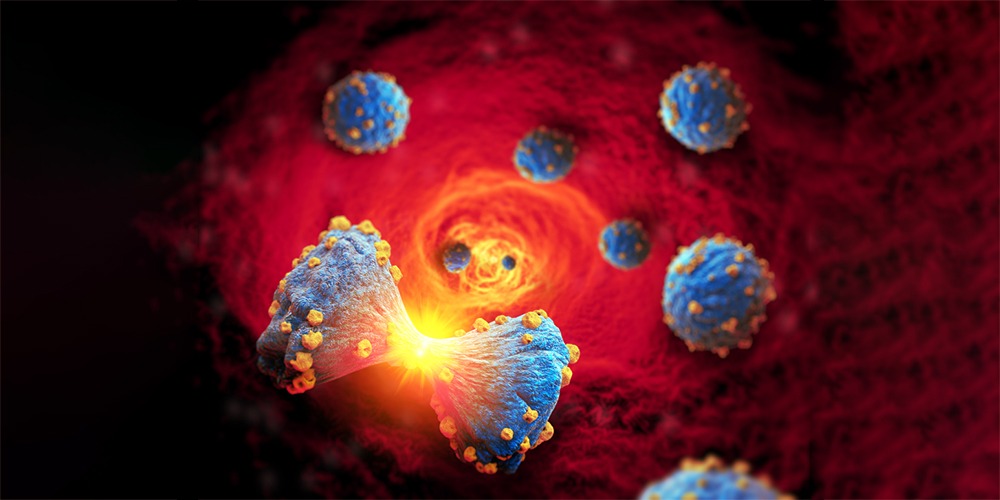
Ultimate Guide For Multiple Myeloma
Myeloma is a form of blood cancer of the plasma cells in the bone marrow. This condition occurs when plasma cells become cancerous and produce tumours called plasmacytomas. This is also called multiple myeloma because a person may have more than one plasmacytomas. Plasma cells are the white blood cells formed in the bone marrow that create large amount of antibodies. Bone marrow is the spongy tissue found inside some of the bones and is where all blood cells are formed.
Multiple Myeloma Treatment in Delhi is now available at Dr Gaurav Dixit's clinic.
Signs and symptoms of multiple myeloma
Symptoms may vary from person to person. Many people do not experience all the symptoms at the early stages of multiple myeloma. Commonly found symptoms in a patient of multiple myeloma are :
- Weakness and fatigue
- Excessive weight loss
- Frequent infections, fevers and other illnesses
- Bone tenderness and pain
- Bone weakness and fractures
- Anaemia
- Frequent urination
- Kidney damage
- Nerve damage
- Increased thirst
- Weakness and numbness in the legs
Causes and Risk factors
Age: The risk of developing multiple myeloma increases with age. People above the age of 65 years or more are often diagnosed with this disease.
Gender: This cancer is slightly more common in men than in women.
Family medical history: It seems to run in some families. If you have parents and siblings with myeloma in your family then you will be more likely to develop this disease.
Obesity: Having excess weight or being obese increases a person's chance to develop multiple myeloma.
Exposure to radiation or chemicals: Exposure to some radiation and chemicals such as asbestos, benzene and pesticides can increase the risk of getting it. There is also a high risk of myeloma among firefighters.
The reason behind this condition is not exactly known. However, doctors say that it begins with one abnormal plasma cell in our bone marrow. These abnormal cells then multiply rapidly. Myeloma cells in the bone marrow crowd out the healthy RBCs and WBCs leading to fatigue and inability to fight with infections.
Is Multiple Myeloma always fatal?
Multiple Myeloma is cancer that forms in the plasma of a white blood cell. It causes the cancer cells to accumulate in the bone marrow. While, the myeloma cells try to produce antibodies, as healthy plasma cells do, it begins to produce abnormal antibodies which are not usable by the body. Instead, the abnormal antibodies build up in the body cause problems such as damage to the kidneys. Some people are lucky to be born into a form of myeloma that is not aggressive. It is present in the patient, but it does not show any outward symptoms. It remains in this mode for about 5 to 10 years and sometimes even 20. You are most likely to survive if you are diagnosed at an age lesser than forty-nine. The average age, in this case, is around seventy years old. At an early age, the myeloma is also at an early stage, which makes it easier to cure. Over the years, about 70% of patients with Myeloma have managed to survive, so myeloma is not fatal. However, sometimes the people may have active disease. The Myeloma may be too aggressive, and the symptoms might be pronounced to find. The Myeloma is the second deadliest cancer in the world.
Diagnosis and treatment
Blood test: Blood analysis may detect abnormal proteins produced by myeloma cells that can indicate the stage of your myeloma.
Urine test: Urine analysis may detect the presence of M proteins, also known as Bence-jones protein. This test is most often performed to diagnose multiple myeloma.
Bone marrow examination: Specialised test such as fluorescence in situ hybridisation (FISH) are performed to detect myeloma cells in bone marrow. This test is also done to measure the rate of myeloma cells multiplication inside the bone marrow.
Treatment may help:
- To reduce pain
- To control complications of the disease
- To stabilize the condition
- To slow down the progress of multiple myelomas
The standard treatment methods include
Medications: Your doctor may prescribe you medication depending on your age and stage of your cancer. It will focus on specific abnormalities within the myeloma cells. Bortezomib, Carfilzomib and Ixazomib are the choices of medications your doctor will prescribe.
Chemotherapy: Chemotherapy kills the fastest growing cancer cells. Bendamustine, Cyclophosphamide, Doxorubicin, Vincristine and Etoposide are some chemotherapeutic agents which your doctor may include in your therapy.
Bone marrow transplant and radiation therapy are also the preferred treatment methods to treat this condition.
If you are searching for the Leading Haematologist in Delhi , meet Dr. Gaurav Dixit. Dr. Dixit at his clinic provide the treatments of various haematological disorders. Fix your appointment today.
Make Appoinment